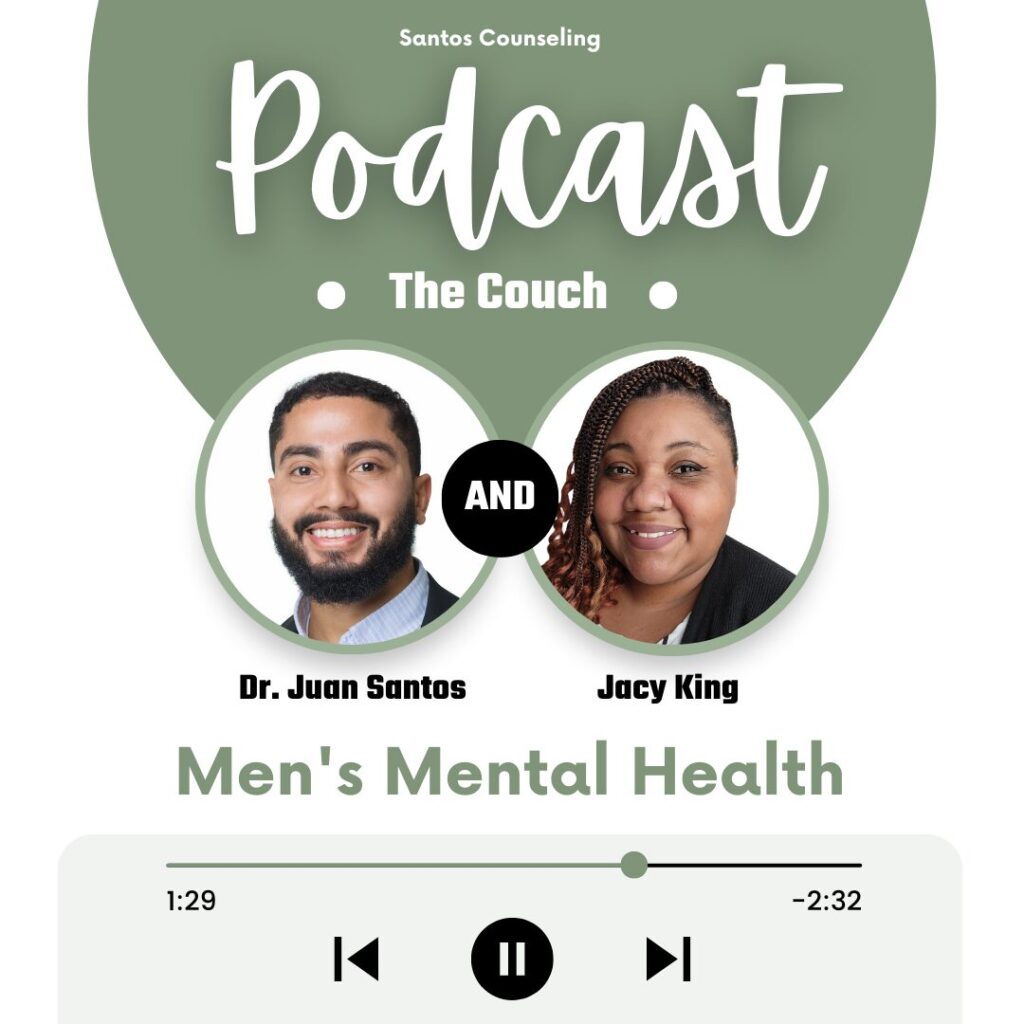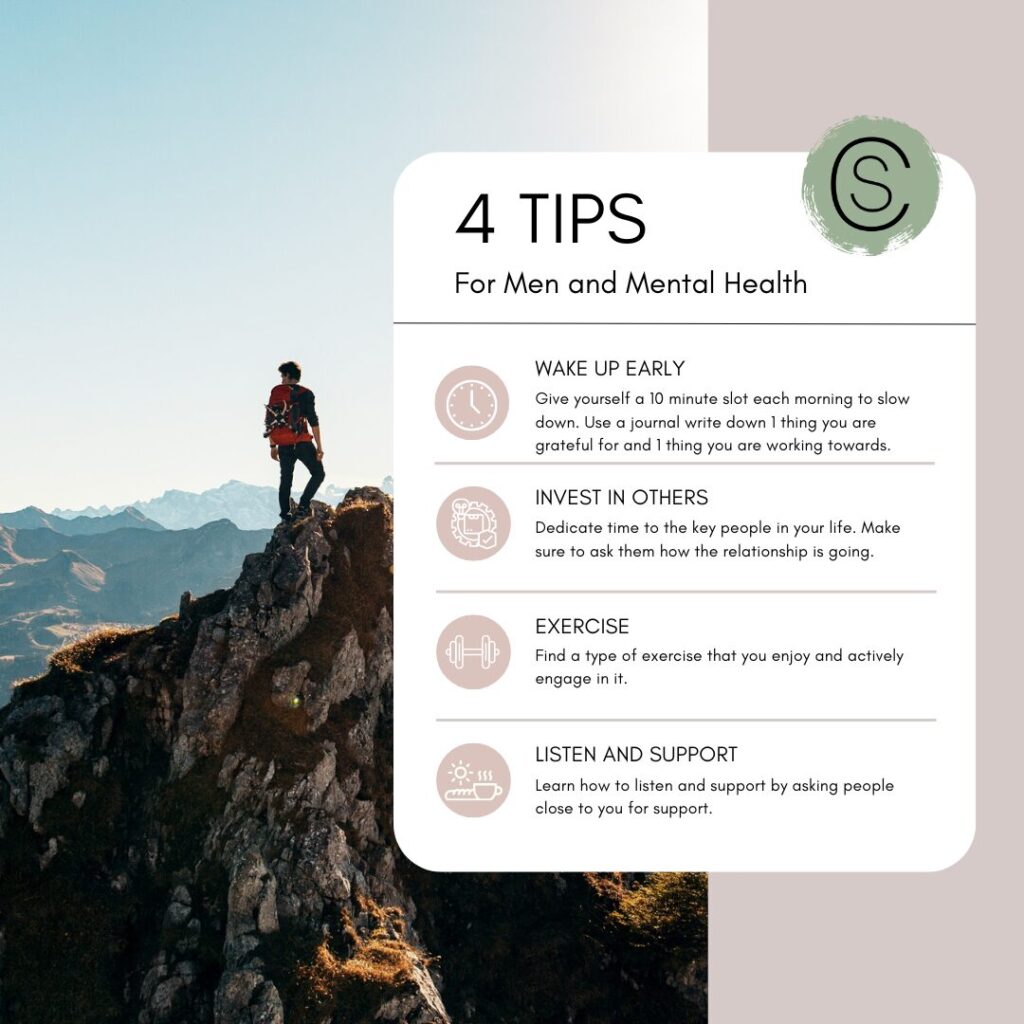Why is therapy hard for men?
Let’s start by bringing attention and sharing that therapy can be hard for just about anyone. Because therapy is known as a place to talk about deep feelings or address hard issues, it’s easy to see why it can be challenging to approach.
Core reasons that therapy can be hard for men:
- Men often approach life with the mindset of solitary problem-solving.
- Socialized gender expectations.
- Pre-existing beliefs from childhood about what men should be or how men should act.
- Men typically approach challenges with the fix the problem mentality instead of a vulnerable and emotionally driven mindset.
- Stereotypes of how men need to behave.
How pre-existing beliefs and stereotypes make seeking counseling hard for men:
Men often are raised with the message of isolation and withdrawal instead of sharing and practicing vulnerability. Some men experience early messages from caregivers that include:
- Stop crying.
- Man up.
- Get over it.
- Boys don’t do that.
- Don’t let them see you crying.
- Suck it up.
- You need to step up and be a man.
- Get over that and man up.
What takes place is that the messages men receive create an internal dialogue and blueprint for how to be and how to function. With the mindset, boys grow into men and overtime experience challenges in various key areas of life.
As an example, men may struggle with getting away from trying to solve problems in their marriage and leaning into listening and being vulnerable. They may struggle with this because of the developed mindset to be a fixer, problem solver, and to not show emotions.

What Are Common Questions People Ask About Men Going To Therapy?
Below are questions that aim to help you better understand the process of counseling.
Should a male get a male therapist?
When it comes to working with a counselor, their is no one-size-fits all. I strongly encourage setting up an initial free 15 minute phone consultation with our counseling practice. You can use this time to talk to the counselor and see if it will be a good fit. It’s important to know that the counselors at Santos Counseling hold advance training in varies clinical areas. The clinical trainings include trauma informed, DBT, CBT, and other evidence based practice.
Is therapy worth it for men?
Take a moment to read our recent article on therapy for men by clicking here. You’ll find data that speaks on depression and suicide rate for men. Therapy can be extremely beneficial to men as it gives men and everyone else a space and constructive space to work through difficult moments in life.
Is it OK for a man to go to therapy?
Yes, it is okay for men to go to therapy. One barrier that often stops men from going to therapy is the masculine male role or messages that men have received during childhood. The ACA has a great read on rethinking masculinity that speaks on the stigma of mental health and common barriers that impact men from going to therapy.
At Santos Counseling we aim to create a counseling practice where men feel at ease, respected, and comfortable to start counseling. Take a moment to reach out to us. We would love to answer your questions and help you with getting started with counseling.
What do men really talk about in therapy?
Interesting enough men talk about many of the same topics as others in the counseling space. Some specific topics that men discuss in counseling include:
- Their role in the family.
- Navigating being a protector and provider with other roles in the family.
- Work stress and balancing the needs of the family.
- Addressing unhealthy messages received during childhood.
- Learning to grow as a father and spouse.
- Gaining skill in healthy communication and listening skills.
Does therapy make me overly emotional?
The quick answer is no. Therapy instead helps me to learn how to effectively regulate their emotions. You can use therapy to help you understand how emotions impact your mind, body, mood, and thoughts.
Over time you will gain skill in regulating your feelings.
Are men shamed for going to therapy?
I encourage you to rethink therapy as a place of development and growth. I find that men are much more comfortable to work with a financial consultant, a leadership coach, or an executive mentor instead of a counselor.
Perhaps it’s because of the social definition of each. I encourage men to think of counseling as a space of growth and development. Just like coaching, consulting, or leadership development spaces.
How we approach counseling:
At Santos Counseling our approach to counseling begins with the therapeutic relationship. This at the core is the relationship between the counselor and client.
The goal is to create a professional relationship where you, the client, feel comfortable, respected, seen, heard, appreciated, and supported. This relationship acts as a foundation to the later deeper clinical work that takes place.
What happens when men avoid counseling:
Working with a counselor can provide ample benefits to individuals. For men, what we want to look at are the challenging areas.
As an example, men often pull away or isolate instead of sharing. Men typically have smaller groups of friends where they share deep emotions compared to their counterparts. I share this to bring attention to what can happen during challenging moments in life.
Let’s work through an example. Let’s say that you, a 40 year old male is struggling with depression. So you decide to say less and socially isolate from others.
It’s important to know there is a difference between taking a social break from people and social isolation.
Common Causes of Loneliness:
- Life transition.
- Experiencing depression.
- Social isolation.
- Mental health difficulties.
- Cultural and societal factors.
Taking social breaks is healthy and can include wanting to be alone after a long day of work, such as fishing. On the other hand, social isolation is a loneliness in which you are socially isolated from others.
Typically, this takes place for an extended time. If you are experiencing any of these symptoms please contact us santoscounseling.com. We are here to help.
The CDC highlights various risk factors to social isolation. Some of the risk factors include:
- Higher risk of dementia.
- Increase risk of stroke.
- Increased risk of hospitalization.
- Poor social skills.
- Increase risk of heart disease.






